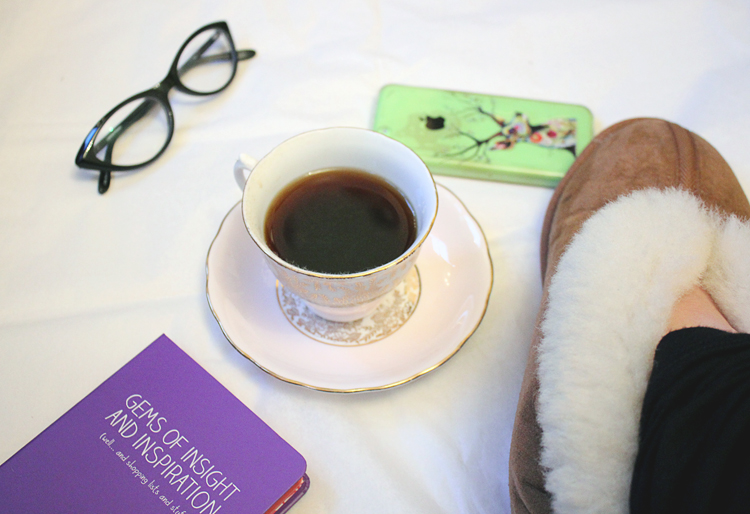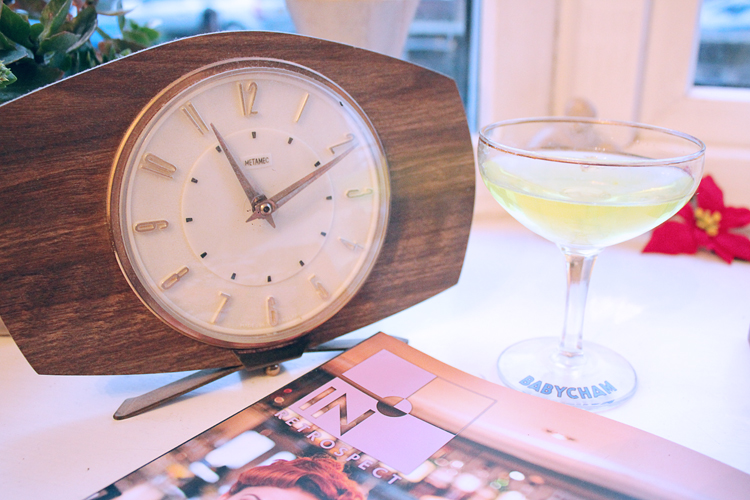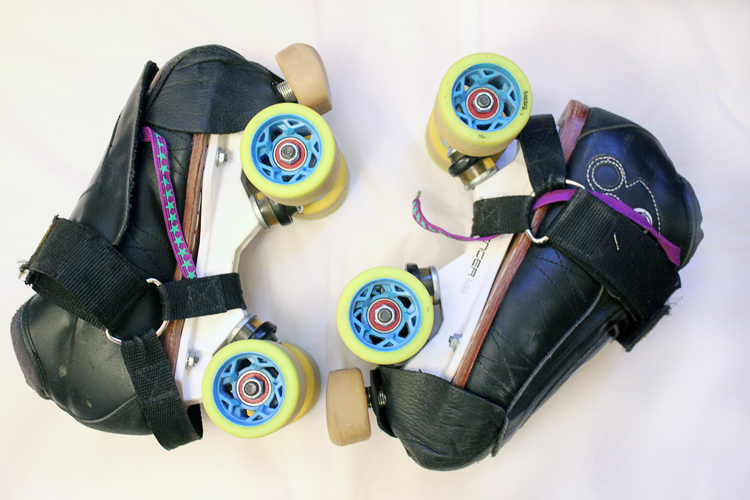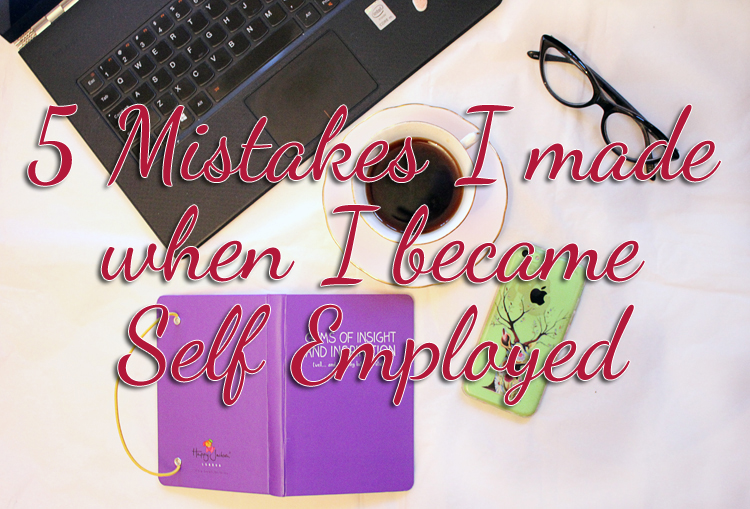Being self-employed is a dream for a lot of people.
They imagine themselves throwing off the shackles of the 9-5 to do their own thing, working on their laptop in coffee shops, taking time off whenever they feel like it and, especially when we’re talking about being a self-employed blogger, getting all sorts of freebies.
In 2015 I saw many of my friends make the move to self employment. Some planned it for a long time, and others took the plunge into making their hobbies their full-time job due to an unforeseen change in circumstances. As 2016 dawns, there will be a whole load of other people will be thinking that this will be the year they finally make that move. Whether it’s a creative move like blogging, photography or art, more commercial enterprises like retail, or launching a new business Apprentice style, self-employment can be really rewarding, giving you more freedom and control over your life. On the flip side it can also be exhausting, isolating and stressful.

I became self-employed by accident. I rather dramatically walked out of a job that had made me incredibly miserable just before Christmas and thought, “Oh Crap, what now?” in the past I’d dabbled with buying and selling clothing on eBay, and not feeling quite ready to throw myself back into looking for another job to make me miserable just yet, I decided to give it a whirl to make some cash while I decided what to do. 8 and a bit years later, I’m still self-employed, though the eBay shop went the way of the dinosaurs when I realised how much I hated going to the Post Office.
When I started writing this I thought I would write a list of tips for people who wanted to become self-employed, but the fact is that the move to self-employment will be different for everyone. It depends on your previous job, what you are moving to, whether you are generally extroverted and sociable or prefer your own space most of the time and what your current financial situation is like.
So instead todays post has morphed into a list of the biggest mistakes I made when I first became self-employed, in the hope that maybe I can help someone else avoid some of them.
1. Working in my Pyjamas
This is the dream isn’t it? Hey, I can work from home in my pyjamas ALL DAY! I can be comfortable, hurrah!
When I worked in an office I practically had my pyjamas back on before I’d got through the front door. They’re comfortable, I like them. Personally I think jeans are one of the least comfortable items of clothing in the entire world, so I don’t wear them as my “comfortable” clothes. In the Summer I would sometimes slob around the house in an easy wearing Summer dress, but if the weather was even slightly chilly then pyjamas were the place to go. When I became self-employed I started working in them all day. I don’t sleep in pyjamas, so in the morning I would change into them to work. Eventually this left me feeling kinda scuzzy and a bit depressed. I didn’t have exciting places to go most days, and my newly self-employed status meant that some weeks I didn’t even have the money for a quick trip to the pub. So all I wore was pyjamas. After a few months I did not feel like a cool and dynamic self-employed blogger chick, I felt like I was on a permanent sick day.

I’m not going to pretend that these days I get up and put on a suit every morning, I spend an awful lot of time in my gym kit, or leggings and a jumper. Something vaguely presentable, but still comfortable, something I wouldn’t mind popping to the corner shop for milk in. I also put on make up most days, even if I’m not leaving the house. It makes me feel more put together and like a human being. It actually helps me focus as well, as putting make up and proper clothes on gives me a mental start point to the day.
Some days you’ll find me in my pyjamas all day, but it’s a treat rather than my default.
2. Not Taking Time Off
Not all self-employed people work from home, but many of them do. When I first started working from home I had an awful time getting myself into a decent routine. I would start up my laptop at 8am, work through till at least 7pm, sometimes without even getting up from my laptop for a lunch break. In the evening and at weekends I’d constantly check my emails, terrified I might take more than 10 minutes to reply to an email or query from a customer and then my entire world would completely implode. I ended up stressed and burnt out, sat at my laptop at 11pm on a Saturday night because something had gone wrong that I wanted to fix. When Mr Chick got home from work I would be snappy and fuzzy headed because I’d barely moved all day.
I’m getting better, but I still do this sometimes. It’s one of the sad things about having emails available at all times on your mobile device. Last year I checked my emails at half time during a really exciting Roller Derby game, and almost missed the entire second half trying to sort out a problem I discovered. If I hadn’t read the email and hadn’t known about the problem till the next morning the outcome wouldn’t have been the slightest bit different, but I would have enjoyed my day an awful lot more.

What I am better at now is setting my own routine, and knowing when to stop working. I take a break in the middle of the day to go to the gym, then come home and continue working for a few more hours. I work in an office now (ok, well, it’s a spare room with a table in it, but for the sake of argument lets call it an office, ok?) and I give myself a set finish time. I’ll often go over it by half an hour or 45 minutes, but when I’m done I leave my “office” and the rest of the night is my own. I’ve learnt to make the most of the flexibility of self-employment, and if I’ve had a hard and stressful few weeks I will give myself a day off, or an afternoon off, to do nothing. When I go on holiday I switch on my out of office, exactly like I would if I were in a regular job. I might check my emails a couple of time just in case anything truly urgent has happened, but I know that most things have had an automated response and no one is expecting a reply till I get home.
3. Putting All My Eggs in One Basket
When I started blogging I had one site. Retro Chick. My traffic grew slowly but steadily, a lot of it came from Google. Then one day I disappeared. Not the site, it was there, but I wasn’t on Google anymore, at all, even when you searched my actual domain name. I panicked and thought I must have done something horribly wrong, but I’d done all the right things and set myself up with a webmaster account and that didn’t show any problems. I did some searching around, and I found other people it had happened to, and I could only conclude it was a “blip” thanks to a recent Google algorithm update. There were ways to contact Google to correct it, but most places recommended patience at first as it sometimes corrects itself. I was at a total loss, and seemingly watching all my hard work so far disappear overnight, thanks to a third-party having a “blip”. Of course, the internet was right, and after a few weeks I was back like nothing had ever happened, all my search engine traffic returned and all was right with the world.
A similar thing happened with Google Friend Connect. Like many non blogger blogs I installed that widget in my sidebar and worked hard to encourage people to use it to connect with my blog and follow me. Then, OMG, at the end of 2011 it was announced that in 3 months it would be gone forever, and so would all those followers.

I learnt some important lessons from both of these events. I’d been relying heavily on Google traffic, and when it disappeared and that one site went I had nothing. I realised that all of those social media sites I signed up to essentially owned that aspect of my business, they had control over how and even IF I could use it, and that was pretty scary.
This is part of the reason I launched different sites for different aspects of my work and then linked them together in a variety of ways. Retro Chick, All the Dresses and Lipstick, Lettuce & Lycra could all, theoretically have just been different categories on one blog, but I was nervous about putting my entire income and livelihood into one place that is so necessarily dependent on third parties to exist and make money. You might be an Instagram superstar, but if Instagram shuts your account down next week you’re done for. I try not to rely too much on one income stream, or one client to keep me going. It’s not possible, particularly in blogging, to remove all that risk, but you can minimise it.
4. Not Having a Hobby
The people I worked in an office with weren’t really my friends, I would see them during the day while I was working and make idle small talk and hear different opinions on the world. Sometimes we would go to the pub after work.
Then I was self-employed. Suddenly I was all alone all day, and the only other person I saw was my husband and the elderly couple behind the counter at the Post Office. I had a few local friends, but I had to make special plans to see them, and often I had no money so there wasn’t much I could do.
I’ve always been fond of my own company, I never played in the street a lot when I was little, preferring to sit in my room and read or play with my toys in my own little world. I thought being on my own all day would be like a DREAM COME TRUE. Turns out all those people who aren’t really your friends are actually sort of useful to keep you connected to the world. At first I was really lonely. The elderly couple at the Post Office once reduced me to tears by telling me off for not using capitals for a post code, when I did get together with my friends I would get massively over excited and then be exhausted for days afterwards. I can still do this sometimes, if I haven’t seen people for a while I have a tendency to get too drunk on a night out, corner people and talk their ear off and then collapse in a heap of self pity and social exhaustion for days afterwards. If I’ve done this to you then I apologise, it means I like you and am happy to be in your company, so do try to forgive me!
At first the internet was a big help in making me feel more connected. I joined blogger groups like Independent Fashion Bloggers, I made friends and connections through Twitter and Facebook and these became my new “colleagues”, giving me an outlet on a day-to-day basis and stopping me feeling so lonely. More recently (I say that, but it’s been over 2 years) Roller Derby has filled part of that role. At practice we’re not there to chat, we’re there to skate and to learn and to work hard, and I do, so it fills that need for human contact on a daily basis and means I’m not (always) so terrifyingly intense when I’m allowed out for the night with real people.

5. Not Asking for Help
I can be quite determined to be independent. If I can’t do it myself then it probably just won’t get done. That’s why now, after 8 years self-employed, I can set up and host my own websites, do basic HTML, CSS and PHP edits, manage my own server, fix my own computer when it breaks, do my own tax returns, set up email lists, manage multiple email accounts and manage a gazillion social media accounts. I understand what Bandwidth is (after spending sometime crying when my host shut my website down the first time I exceeded it) I learnt to use less of it by setting up caching plug-ins.
I probably can’t count the number of things that have reduced me to tears, cost me hundreds of man hours, but that I can now understand and fix. Some of it has been a great learning experience. I now manage social media for other people and also deal with web hosting for a few other people. It’s another string to my bow. But the fact is that all those hundreds of hours I spent learning about it were time I wasn’t spending doing things related to my core business of writing and, er, looking at frocks. I do like to help people, though, because I remember how hideously stressful it was when it happened to me and sometimes those hideously stressful things might actually only take a minute to fix if you know what you’re doing.
If I’d asked for help I might have been a lot less stressed, and not necessarily a lot less knowledgeable. Understandably people who’ve spent those hundreds of man hours learning a skill sometimes get a bit twitchy if every week you’re banging on their door asking them to sort you out for free, but being aware of the skills of your friends and family, and at least asking them to point you in the right direction of how you can fix it is not a bad thing. If it’s a quick fix they might do it for you or point you at the right answer in less time than it would take to find it yourself, if it’s not a quick fix they might fix it for a lot less than finding and hiring someone else would cost, or you might be able to offer some of your skills in return. Be aware of being that person who is always asking for help and offers nothing in return, but don’t be afraid to ask sometimes, everyone’s time is valuable, and that includes yours.
[separator type=”thin”]
So that, in predictably wordy fashion, is a run down of the biggest mistakes I made after I became self-employed!
Are you self-employed or considering it? I’d love to hear your thoughts and experiences too!


The 5 Biggest Mistakes I Made When I Became Self Employed: https://t.co/2ixtnFWroX… https://t.co/cvBdOtme9V
The 5 Biggest Mistakes I Made When I Became Self Employed: https://t.co/2ixtnFWroX… https://t.co/GLTk3edC0s
RT @Ur_Image: The 5 Biggest Mistakes I Made When I Became Self Employed: https://t.co/2ixtnFWroX… https://t.co/GLTk3edC0s
The 5 Biggest Mistakes I Made When I Became Self Employed https://t.co/ouyzaaZ3oy
Vicky Hayes liked this on Facebook.
Oh La Lovelies liked this on Facebook.
I can relate to all of these but still love being my own boss x
Oh me too!
RT @Topnewsarena: The 5 Biggest Mistakes I Made When I Became Self Employed https://t.co/ouyzaaZ3oy
Isabella Conn liked this on Facebook.
Bev Brown liked this on Facebook.
Denise Elvy liked this on Facebook.
Fiona Phillips liked this on Facebook.
Jennifer Frances liked this on Facebook.
Cathy Mills Vandergriff liked this on Facebook.
Catherine Beck liked this on Facebook.
Excellent advice from Retrochick for entrepreneurs working from home.
#retro #vintage #entrepreneurs https://t.co/yOpdSDOP3S
Samuel Bueno Sanchez liked this on Facebook.
Sara Feldmann Brummer liked this on Facebook.
I can see myself in a lot of what you have mentioned here. I started out late last year, and have already fallen into the trap of pj days. I am an introvert and I do love my own company, but I know I’m going to have to make a real effort to maintain contact to the outside world. I’m worried about finding that a bit exhausting though – it’s so easy to just pretend outside doesn’t exist! I also don’t like asking for help, so I’m really stubborn on that front! It would be great to hear more about your journey into self employment, particularly blogging.
https://vintagenblog.blogspot.com
It does get less exhausting, you get into a bit of a routine eventually and it gets easier!
I’m glad you want to hear more because I plan to try and write a few more blogging posts this year. I’ve learnt all this stuff, might as well share it 😉
Good luck with self employment!
María Carrasco Melero liked this on Facebook.
Tanda Chmilovska liked this on Facebook.
I’m not self-employed, but I do freelance on top of the day job. I don’t think it’s for me, I’m not good with uncertainty, and I’d be terrified of work drying up and me ending up starving in a gutter! (Perhaps I need to work on my self-confidence.) I do think you need to be organised and motivated on top of capable to be self-employed, it’s hard work and I repsect it immensely.
You definitely need to be self motivated. It can be really tough if you’re having a lazy day and there’s loads that needs doing!
Sophie Page liked this on Facebook.
Samantha Jane Williams liked this on Facebook.
I’ve definitely fallen into the wearing PJs all day trap & never feeling like you’ve properly got up! So trying to remedy that one, and the worst thing for me after 24 years of 9 – 5 before going self-employed last January has been getting used to the loss of structure that came with the office job, & trying to create a new & better structure! I have found social media good for making contact with friends & other self-employed people working from home so it’s not as isolating as it could have been. Also, I suddenly realised at the end of the year that I hadn’t taken many days off as such! so it’s important to take breaks as you say. It’s not easy & lots of challenges to get through, but nice to read something like this & realise it isn’t just me!
Oh, it’s definitely not just you!
Great post!
Jo Harness liked this on Facebook.
Gourmet Escapades liked this on Facebook.
Natalie Reeve liked this on Facebook.
Wake Up Little Susie liked this on Facebook.